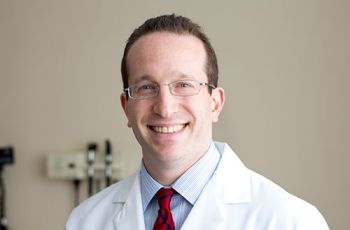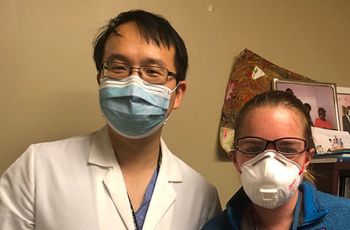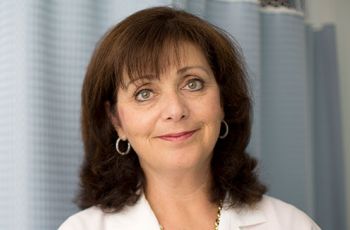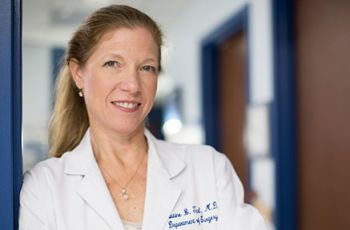GW Cancer Center
A survey from the GW Cancer Center highlights the influence of supportive oncodermatology on patient quality of life.
When planning their wedding, Yuan James Rao, MD, director of brachytherapy at the GW Cancer Center and assistant professor of radiology at SMHS, and Destie Provenzano, a PhD candidate in the GW Department of Biomedical Engineering, had no idea the day would land amid a global health crisis.
Researchers at GW published in the Journal of Clinical Oncology Clinical Cancer Informatics on the new knowledgebase OncoMX, which will improve the exploration and research of cancer biomarkers in the context of related evidence.
The Cutaneous Oncology Program at the GW Cancer Center was selected as the first global site for a clinical trial for patients with high-risk cutaneous squamous cell carcinoma.
Adam Friedman, MD, interim chair of the Department of Dermatology, spoke to Ivanhoe Broadcast News for a segment on supportive oncodermatology.
Rachel Brem, MD, director of breast imaging and intervention at the GW Cancer Center and professor of radiology, spoke to NBC News for an article about a woman who found out she had breast cancer partly through thermal imaging.
Rebecca Kaltman, MD, director of the Ruth Paul Cancer Genetics and Prevention Service at the GW Cancer Center and assistant professor of medicine, spoke to Romper for an article on the BRCA genes and breast cancer.
Christine Teal, MD, director of the Comprehensive Breast Center at the GW Cancer Center, spoke to WTOP for an article on breast cancer detection and prevention. WTOP also quoted Teal in an article on technology used for early detection.
Rachel Brem, MD, director of breast imaging and intervention at the GW Cancer Center and professor of radiology as SMHS, spoke to Today.com for an article discussing what women under 40 should do to detect breast cancer.
GW Cancer Center researchers found that PTEN, a tumor suppressor gene mutated in approximately 20% of primary prostate cancers, and in as many as 50% of androgen deprivation-resistant prostate cancers, relies on another gene, ARID4B, to function.





